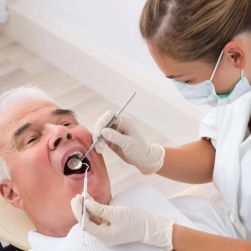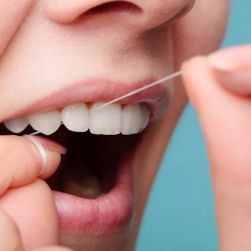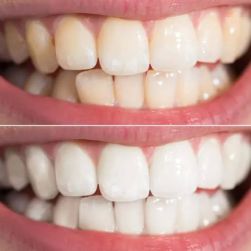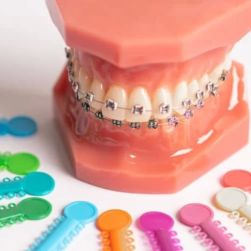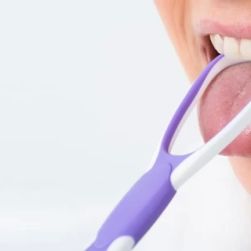Why Oral Hygiene is Essential for Kids: A Parent's Guide
As a parent, one of the most important responsibilities we have is teaching our children good habits that will shape their future well-being. One such habit that often gets overlooked or brushed aside is the importance of oral hygiene. I learned this firsthand when my son, Timmy, who was five at the time, came home from a routine dental check-up with a big, sad frown. His dentist had pointed out that, despite brushing, he hadn’t been flossing regularly and was beginning to show signs of tooth decay. That moment opened my eyes to just how crucial it is to instill strong oral hygiene habits from a young age.
Understanding the Basics: Why Oral Hygiene Matters
Oral hygiene isn't just about having a bright smile; it plays a significant role in the overall health of a child. Poor oral hygiene can lead to various dental problems like cavities, gum disease, and even tooth loss. But did you know that it can also affect your child's overall health? Research has shown that poor dental health can be linked to problems like heart disease, diabetes, and even digestive issues. It's no surprise, then, that a healthy mouth is the foundation for a healthy body.
From the moment babies start teething, it's crucial to start practicing oral hygiene. Gums can become irritated, and early cavities can develop even before the first tooth erupts. It's never too early to begin forming habits that will last a lifetime. But for many kids, learning how to brush and floss properly can be a bit challenging. So, how do you teach them the importance of oral hygiene in a way that's engaging and fun?
1. Make Brushing a Fun Routine
One of the first things I realized in teaching Timmy about oral hygiene is that kids love fun and routine. If brushing teeth feels like a chore, they’ll resist it. But if it's part of a fun routine, they’re more likely to stick with it. For example, we turned brushing into a game. I would sing silly songs while brushing his teeth, and he would try to beat the timer to see if he could brush for two minutes. There are also plenty of interactive apps and videos designed to make brushing fun for kids, and Timmy loved using the ones that featured his favorite cartoon characters. Suddenly, brushing his teeth became something he looked forward to instead of something he dreaded.
2. Teach the Importance of Flossing
When most kids learn to brush, flossing often gets overlooked. But the truth is that flossing is just as important as brushing. Flossing helps remove food particles and plaque from areas that the toothbrush can’t reach. When Timmy first learned about flossing, he thought it was just a silly thing to do with string. However, after we watched a fun video about "the plaque monsters" hiding between his teeth, he became excited to floss and fight the "monsters" after every meal. Turning flossing into an adventure can be a simple yet effective way to get kids excited about doing it properly.
3. Role Model Good Habits
Kids often learn best by watching their parents. If I didn’t take the time to brush and floss my own teeth, how could I expect Timmy to? By making sure that I practiced what I preached, Timmy saw firsthand how important it was to take care of my teeth. We even made it a family activity where we brushed our teeth together, making it an enjoyable bonding experience. By seeing me take my oral hygiene seriously, he began to understand the importance of maintaining a clean mouth too.
4. Healthy Eating Equals Healthy Teeth
Oral hygiene isn’t just about brushing and flossing. It’s also about making healthy food choices. Timmy used to beg for sugary snacks like candy and soda, which are known to contribute to cavities. But after explaining to him how sugary treats feed the bad bacteria in his mouth, making it harder to keep his teeth clean, he started opting for healthier snacks like fruits and veggies. Additionally, drinking plenty of water and avoiding too many sugary drinks can also help keep teeth healthier. Teaching kids about the connection between food and oral health is a great way to give them a sense of control over their own dental health.
5. Regular Dental Visits are Key
Another lesson I’ve learned along the way is that regular dental check-ups are crucial. Even though Timmy didn’t always like going to the dentist, I explained to him that just like how we go to the doctor for a check-up, we go to the dentist to make sure his teeth are healthy. After a few visits, he became more comfortable and started to understand the importance of professional care. Dentists can spot problems early before they become major issues, which is why these regular visits should be a priority. They can also provide tips on how to take care of teeth and prevent future problems.
6. Celebrate Success and Build Confidence
One of the most rewarding parts of teaching Timmy about oral hygiene was seeing him take pride in his own dental health. He loved getting his "sticker" after a dentist visit or when he brushed without being reminded. Positive reinforcement, such as praise or small rewards, can go a long way in motivating kids. By celebrating their dental successes, you’re helping to build their confidence and encourage them to continue practicing good oral hygiene.
Incorporating Oral Hygiene into Daily Life
As we went through these steps together, I realized that teaching kids about oral hygiene isn’t just about brushing teeth; it’s about building a lifestyle that supports their overall health. Timmy now takes pride in his dental hygiene, brushing twice a day, flossing regularly, and even reminding me when it's time to visit the dentist. Oral hygiene has become a natural part of our daily routine, and it’s something we both enjoy. The earlier we can instill these habits, the better off our kids will be in the long run. So, take the time, make it fun, and most importantly, show your kids how much you care about their dental health. It will pay off for years to come!

